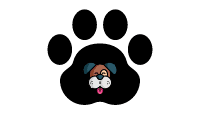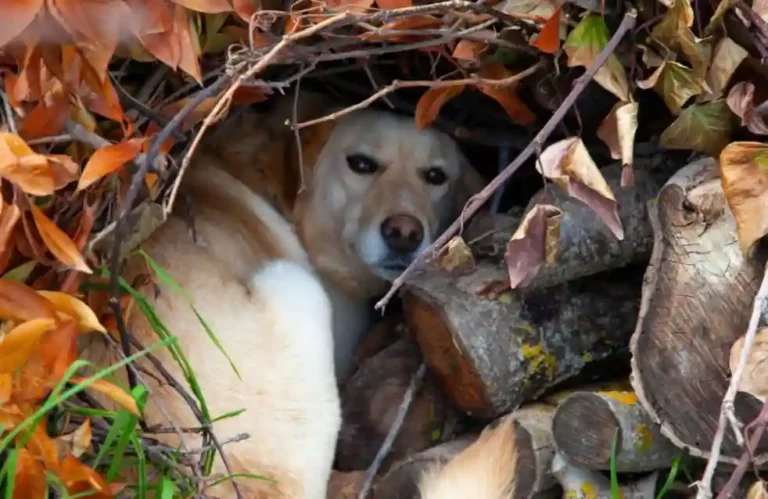Can You Wash Your Pet With Laundry Detergent [Read Vet advice]
It is not advised to use any detergent while bathing your pet. A lot of soap and shampoo is available in the market, which can be used mainly on your pet.
Can You Wash Your Pet With Laundry Detergent? No, it would be best not to wash your pet with laundry detergents, as it harms your pet’s skin. The detergent contains toxic and harsh chemicals that can quickly get into the eyes and other sensitive places, which can cause burning sensations in your pet.
They do not contain toxic chemicals at all. They are made mainly in focusing on the different pets and their comfort. Thus if you think about bathing your pet, do it properly.
![Can You Wash Your Pet With Laundry Detergent [Read Vet advice] 1 Can You Wash Your Pet With Laundry Detergent](https://www.puppiesdiary.com/wp-content/uploads/2023/01/Can-You-Wash-Your-Pet-With-Laundry-Detergent.webp)
Also, try to avoid hard water in cleaning your pet; it is also harsh for the pet and causes irritations in the body. Bathing your pet is difficult as pets are notorious and try to escape from a bath.
But bathing cleans them up and prevents them from the risk of any infection. Thus, it would be best to take care of your pet’s hair while washing and applying proper shampoo and soap to make the hair smooth and shiny.
Therefore, if you have a pet and are new to this and do not know what to do, do your research correctly.
This means that before washing your pet, carefully read the side effects and ingredients of every product you wish to use.
Table of Contents
- Is It Safe To Wash Dogs With Laundry Detergent?
- Things To Remember While Washing Your Pet
- What Do I Do If My Dog Ate Laundry Detergent?
- Symptoms When A Dog Eats Laundry Detergent
- Is Laundry Detergent Toxic To Dogs?
- Is Tide Free And Gentle Safe For Dogs?
- Is detergent harmful to your dog’s fur?
Is It Safe To Wash Dogs With Laundry Detergent?
Dogs are family members, and they deserve to be treated like one. Just because these animals have fur doesn’t mean they should be treated differently from your other household pets.
Your stuffed animal has probably been bathing in fabric softener for years and is fine.
But is it safe to wash a dog with laundry detergent? It all depends on what type of fur your dog has and what laundry soap you use.
If your dog is a long-haired mutt, it might be a good idea to use something for their fur type.
The good news is that most dogs’ fur doesn’t have to be treated differently than humans’ hair. The best kinds of soap for dogs are human soaps with the same pH level as humans.
You can also use baby soap or shampoo; they should work fine on your pup. Just make sure you rinse thoroughly after you wash her down.
If you’ve opted for a detergent without enzymes, ensuring that you’re using a high-quality pet conditioner is essential. Dog fur can become brittle and tangled like people’s hair if you don’t add extra care.
Things To Remember While Washing Your Pet
Here are some things you should know before washing your dog with laundry soap
Be Aware of the Ingredients Just because it is for humans doesn’t mean it is suitable for dogs.
You should only use products on your pup made specifically for them. These are usually found in pet stores and carry only labels for pets.
- Do Your Research
There are a lot of products out there that claim to be for your dog. However, not all are created equally, so research before purchasing.
- Wash Only The Hairs
Never mix dog shampoo with human shampoo. It will strip moisture from your dog’s coat and cause her skin to dry. You must remove tangles from the coat by brushing or gently massaging it.
What Do I Do If My Dog Ate Laundry Detergent?
If your dog has somehow managed to eat a laundry detergent, there are some steps you can take to help alleviate the symptoms.
You will know what will occur if your dog eats laundry detergent and what you should do to ensure that they don’t suffer any significant side effects.
Detergents contain chemicals, primarily phosphates which could cause problems with a dog’s GI tract. Some may also have scents or other ingredients which might entice dogs to eat them.
If your dog accidentally gets into a laundry detergent bottle, it may need to be monitored while eating it.
Symptoms When A Dog Eats Laundry Detergent
The most common symptom of dogs ingesting detergent is liquid running in the ears. This could occur after your dog chews the pouch or swallows detergent in their drool or saliva. Other symptoms include vomiting, diarrhea, and difficulty breathing.
If your dog appears to have trouble breathing or swallowing, these could be signs of respiratory distress from either ingesting detergent or the drool.
If a dog’s face becomes flushed and its heart rate is irregular, you may want to contact your veterinarian for further assistance.
When dogs ingest laundry detergent, monitoring them over hours as they digest is essential. Contact your veterinarian immediately in the following scenarios:
- Your dog has ingested laundry detergent and appears to have difficulty breathing.
- If your dog appears to be in a moderate to severe amount of pain
- The dog has eaten any laundry or dish soap, or toothpaste.
- If your dog has chewed and swallowed an unknown amount of detergent, it probably will not require medical attention if they have vomited and are breathing normally. If they appear to have diarrhea or are vomiting, contact your veterinarian immediately.
Is Laundry Detergent Toxic To Dogs?
Detergent is an excellent cleanser, with the bonus of being a high-tech ingredient in laundry soap. But is it safe to use when you have pets? The effects detergent has on your pet vary depending on the product and method of usage.
![Can You Wash Your Pet With Laundry Detergent [Read Vet advice] 2 Is Laundry Detergent Toxic To Dogs](https://www.puppiesdiary.com/wp-content/uploads/2023/01/Is-Laundry-Detergent-Toxic-To-Dogs.webp)
Though some are not too toxic, most cleaning agents would be harmful if consumed by a dog.
It would be best to be cautious about allowing dogs to play near chemicals or drink from puddles. These precautions will also help keep them safe from slipping over and ingesting detergent that could harm them in other ways.
The most frequent concerns about detergents are respiratory irritants and skin irritation. Respiratory irritants refer to any chemical that irritates a dog’s respiratory system.
The chemicals then become trapped in the throat, causing your pet to cough.
Sodium hypochlorite or bleach is a common irritant for dogs, causing skin or eye irritation and respiratory problems. It is also corrosive and can reach potentially toxic levels.
According to current OSHA standards, commercial detergent contains 25% sodium hypochlorite. And chlorine bleach products contain 40-50& sodium hypochlorite, which harms the puppy’s skin.
Sodium hypochlorite is used in swimming pools and hot tubs but should not be in a dog’s environment.
In addition, as bleach is an ingredient in some home laundry detergents, dogs should not be allowed to play with clothes or towels that have been washed with this chemical.
Is Tide Free And Gentle Safe For Dogs?
Tide is a well-known laundry detergent produced by Procter and Gamble. It is often a famous brand because it provides tough stain-fighting power. Tide contains ingredients that can be harmful to dogs.
Please consult your vet before using it on your dog. If you still think it’s alright after consulting your vet, you should use it cautiously on your dog while washing them.
You should consult your vet first because some dogs face reactions or fatalities when subjected to chemicals like these.
The active ingredients found in Tide Free and Gentle are Isopropyl alcohol. This ingredient can irritate the skin and is toxic if ingested. Isopropyl alcohol can also be dangerous if inhaled or in contact with eyes and mucous membranes.
Isopropyl alcohol can have serious side effects such as unconsciousness, breathing difficulties, coma, and even death.
When ingested, it causes vomiting, abdominal pain, diarrhea, and central nervous system depression. Isopropyl alcohol may also irritate the skin and eyes. Poisoning symptoms include nausea, vomiting, drowsiness, dizziness, and headache.
Is detergent harmful to your dog’s fur?
The ingredients make up that detergent, how much is used in quantities, and how often it can harm or even kill your dog’s fur. Many popular brands contain harsh chemicals that can be harmful to dogs.
![Can You Wash Your Pet With Laundry Detergent [Read Vet advice] 3 Is detergent harmful to your dog's fur](https://www.puppiesdiary.com/wp-content/uploads/2023/01/Is-detergent-harmful-to-your-dogs-fur.webp)
The ingredients that make up most detergents are dangerous to your pet. Dog hair is sensitive, and you should pay extra attention when you use any soaps. Also, look for any detergents that contain alcohol or ammonia.
The three most common chemicals in most modern-day detergents harm your dog and cat’s fur.
Liver damage is possible with prolonged exposure to these chemicals. Also, extended exposure can damage the red blood cells in your pet’s body.
You ultimately lead to anemia, a lack of red blood cells in your pet’s body, leaving it susceptible to several infection-related illnesses that could prove fatal.
Thus as an owner of the dog, it is your responsibility to take care of your dog’s health. Also, monitor what they eat to prevent them from eating harmful or toxic chemicals.
Is It Bad That I Can Feel My Dog’s Microchip? [Vet Conclusion]
puppiesdiary

![How Long Does It Take For A Dog's Paw Pad To Heal? [Expert Advice] 4 How Long Does It Take For A Dog’s Paw Pad To Heal? [Expert Advice]](https://www.puppiesdiary.com/wp-content/uploads/2023/02/How-Long-Does-It-Take-For-A-Dogs-Paw-Pad-To-Heal-768x555.webp)



![Coping With the Loss of Your Dog [Finding Comfort When A Pet Passes Away] 8 Coping With the Loss of Your Dog [Finding Comfort When A Pet Passes Away]](https://www.puppiesdiary.com/wp-content/uploads/2023/09/Coping-With-the-Loss-of-Your-Dog-768x494.jpg)
